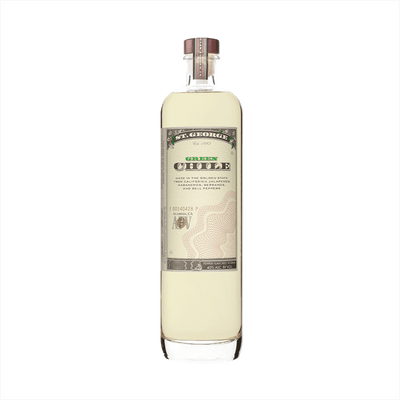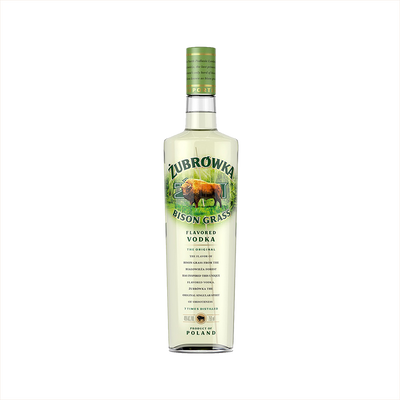Botanical-Flavored Vodka
What is Botanical-Flavored Vodka?
Botanical-flavored vodka represents a sophisticated category within Flavored Vodka that incorporates herbs, spices, flowers, and other plant-based ingredients to create complex, garden-fresh profiles. These spirits distinguish themselves from fruit-flavored varieties by focusing on earthy, herbal, and floral notes derived from ingredients like lavender, rosemary, cucumber, elderflower, or peppercorn. The result is a more nuanced drinking experience that bridges the gap between traditional vodka and gin, offering bartenders and home mixologists a versatile base for both classic and contemporary cocktails.
Learn More About Botanical-Flavored Vodka
What makes Botanical-Flavored Vodka unique?
Botanical-flavored vodka stands apart from other flavored vodkas through its sophisticated use of herbs, spices, and plant extracts that create complex, layered flavor profiles rather than simple single-note tastes. While fruit-flavored vodkas typically rely on sweet, straightforward profiles and dessert vodkas lean heavily into candy-like notes, botanical vodkas draw inspiration from gin-making traditions to incorporate ingredients like juniper, cardamom, lavender, or rosemary that add depth and nuance. This approach results in spirits that feel more refined and versatile, working beautifully in both classic cocktails and modern craft creations where their herbal complexity can shine through without overwhelming the drink.
How is Botanical-Flavored Vodka made?
Botanical-flavored vodka starts with a neutral base spirit that gets infused with various herbs, spices, flowers, or other plant materials through maceration, where the botanicals steep in the vodka for days or weeks to extract their flavors. Some distillers prefer vapor infusion, suspending the botanicals in a basket above the spirit during redistillation so the alcohol vapors pick up the essential oils and aromatic compounds as they pass through. The final product is then filtered and often diluted to bottling proof, creating a clean spirit that carries the distinct character of its chosen botanicals while maintaining vodka's signature smoothness.
How do you drink Botanical-Flavored Vodka?
Botanical-flavored vodka shines brightest in cocktails where its herbal complexity can play nicely with other ingredients, though sipping it neat or over ice lets you appreciate the intricate flavors without distraction. These vodkas work beautifully in gin-style drinks like martinis and negronis, as well as refreshing summer cocktails with citrus, tonic, or muddled herbs. The herbal and floral notes make botanical vodkas perfect for warm-weather entertaining and outdoor gatherings, when their bright, garden-fresh flavors feel most at home.
How do I choose good Botanical-Flavored Vodka?
Start by considering whether you want a subtle hint of botanicals or a bold, gin-like expression—some brands whisper their herbs while others shout them from the rooftops. Think about your intended cocktail too: delicate cucumber or lavender vodkas shine in martinis and spritzes, while robust herb-forward bottles can stand up to citrus-heavy drinks and bloody marys. Always check the ingredient list to see if the botanicals are natural extracts or artificial flavors, since the real deal will give you more complex, layered flavors that actually improve your cocktails rather than just adding sweetness.
Nutritional Information
Typical Calorie Range per Ounce: 64-70 calories
Typical Carbohydrate Range per Ounce: 0-2 grams
Typical Sugar Range per Ounce: 0-1 gram
Typically Gluten Free: Yes
Most botanical-flavored vodkas start with traditional vodka as their base, which contains virtually no carbohydrates or sugars after distillation. The slight variations in these ranges come from the botanical infusion process—some producers add natural fruit essences or herb extracts that may contribute minimal carbohydrates. The calorie content remains consistent with standard vodka since alcohol itself provides about 7 calories per gram.
While vodka is generally considered gluten-free due to the distillation process removing gluten proteins, those with celiac disease or severe gluten sensitivity should always verify the specific product's gluten-free status with the manufacturer. Some botanical vodkas may use flavoring agents or processing methods that could introduce gluten cross-contamination.
Scrolled this far? Your reward? Botanical-Flavored Vodka Trivia!
- Some premium botanical vodkas are distilled with live plants still growing in soil during production. Master distillers at select craft distilleries literally wheel potted herb gardens into their distillation rooms, believing that living botanicals release different aromatic compounds than dried ones. The plants continue photosynthesis during the process, creating what producers call "breathing botanicals" that supposedly capture the essence of a garden at peak vitality.
- The world's most expensive botanical vodka contains actual meteorite fragments. A Lithuanian distillery infuses their small-batch vodka with powdered meteorite that fell in Siberia over 4,000 years ago, claiming the cosmic minerals add unique mineral complexity. Each bottle costs around $1,200 and comes with a certificate of authenticity from the meteorite supplier. Scientists remain skeptical about any flavor impact, but collectors snap up every release.
- Certain botanical vodkas change color when you add ice or mixers due to thermochromic botanicals. Distillers use butterfly pea flowers and other pH-sensitive plants that react to temperature changes and acidity levels. Pour the clear vodka over ice, and it might turn blue. Add lime juice, and watch it shift to purple. It's not artificial – it's pure plant chemistry creating a liquid light show in your glass.
- Master distillers sometimes use "botanical ghosting" – a technique where they distill the same batch multiple times through different botanical chambers without cleaning between runs. This creates layered flavor profiles where rose petals might leave invisible traces that enhance subsequent lavender distillation. The result is botanical vodkas with mysteriously complex flavors that seem to contain more ingredients than listed on the label.
- Some craft distilleries age their botanical vodka in used wine barrels that previously held the same botanicals. If they're making rosemary vodka, they first age rosemary in wine barrels for months, then use those same barrels to rest the finished vodka. This creates a feedback loop where the wood becomes saturated with botanical oils, then slowly releases them back into the spirit, creating depth impossible to achieve through traditional infusion methods.
Higher-proof spirits can be intense. Mix carefully, taste thoughtfully, and enjoy responsibly.
Gift message (optional)


